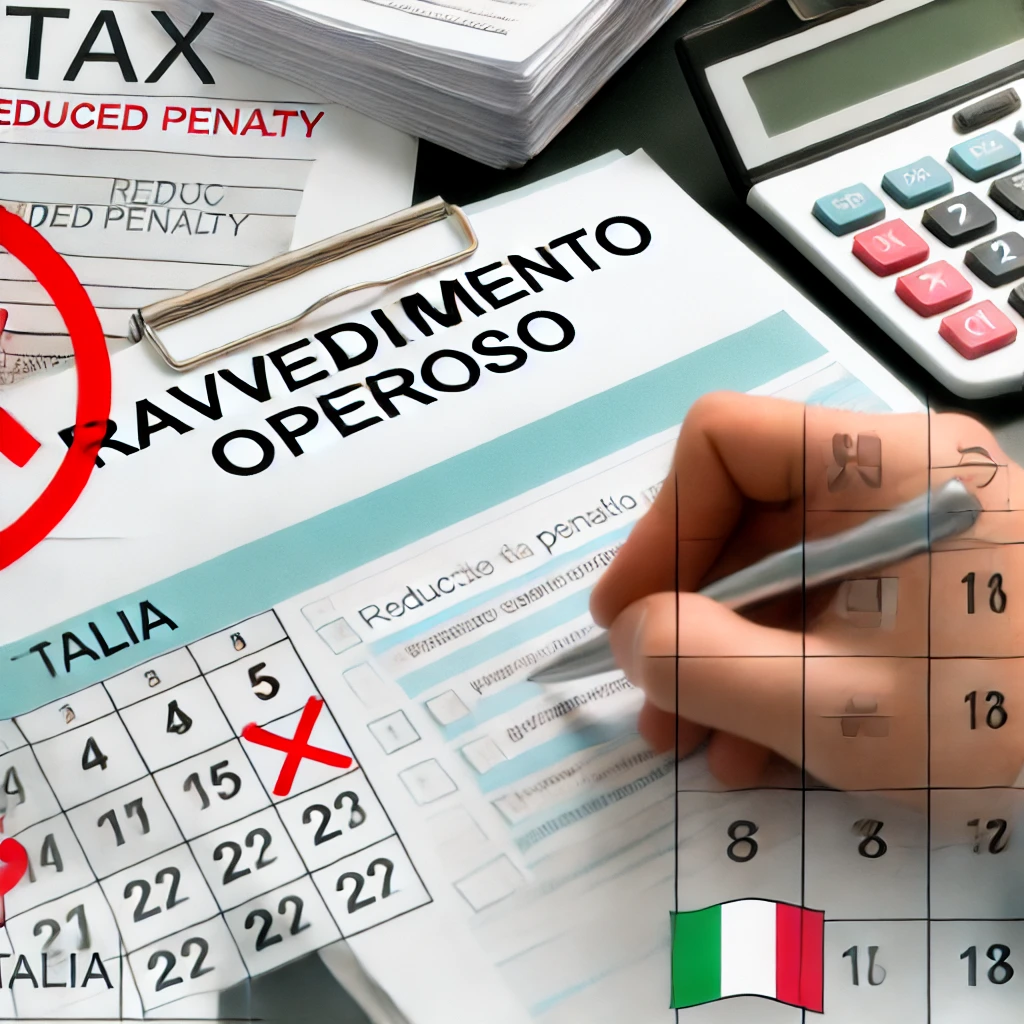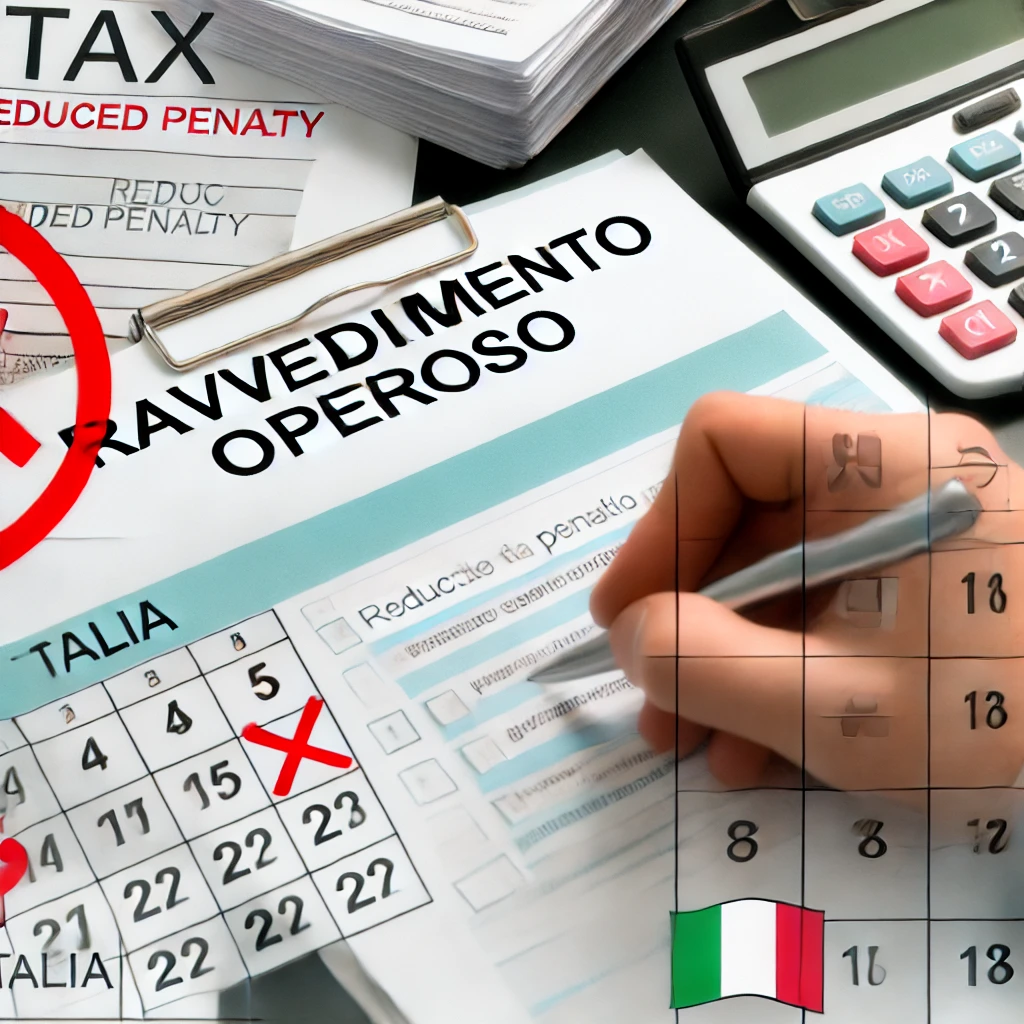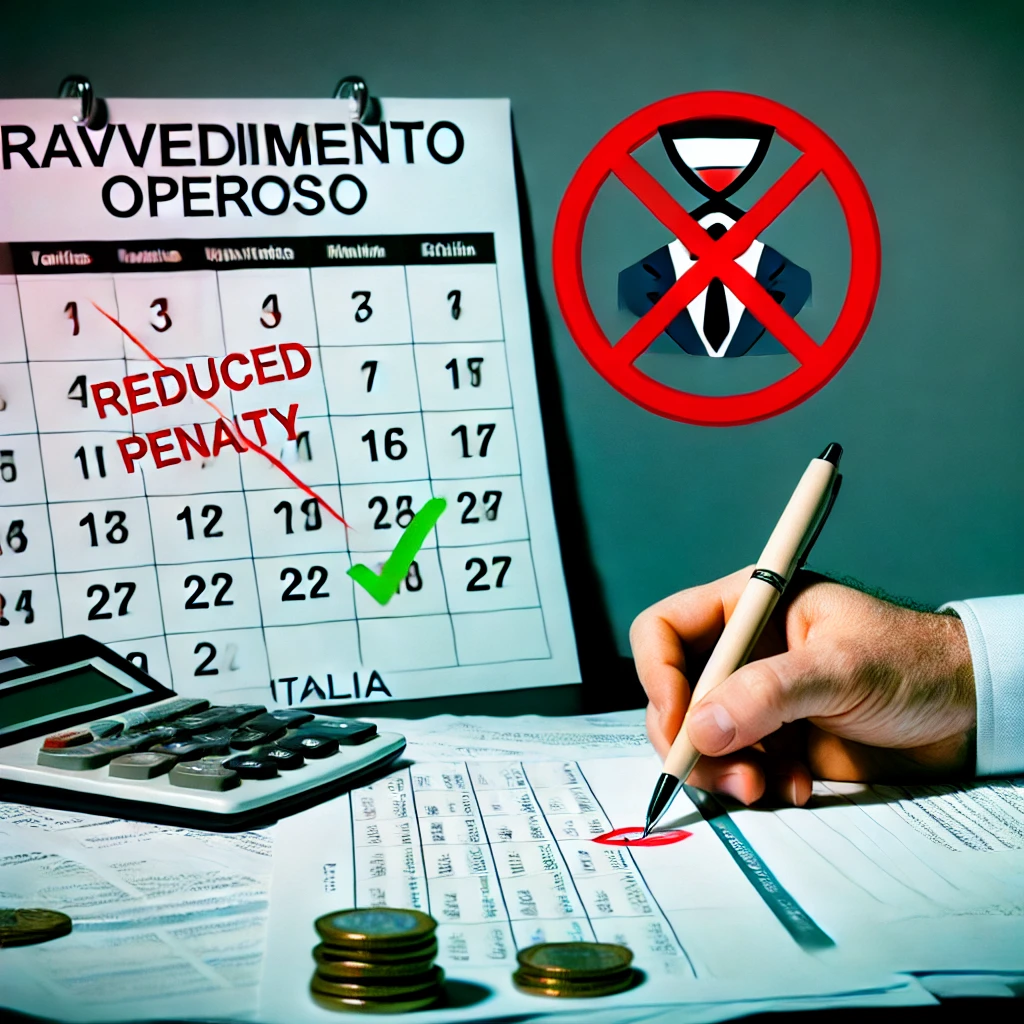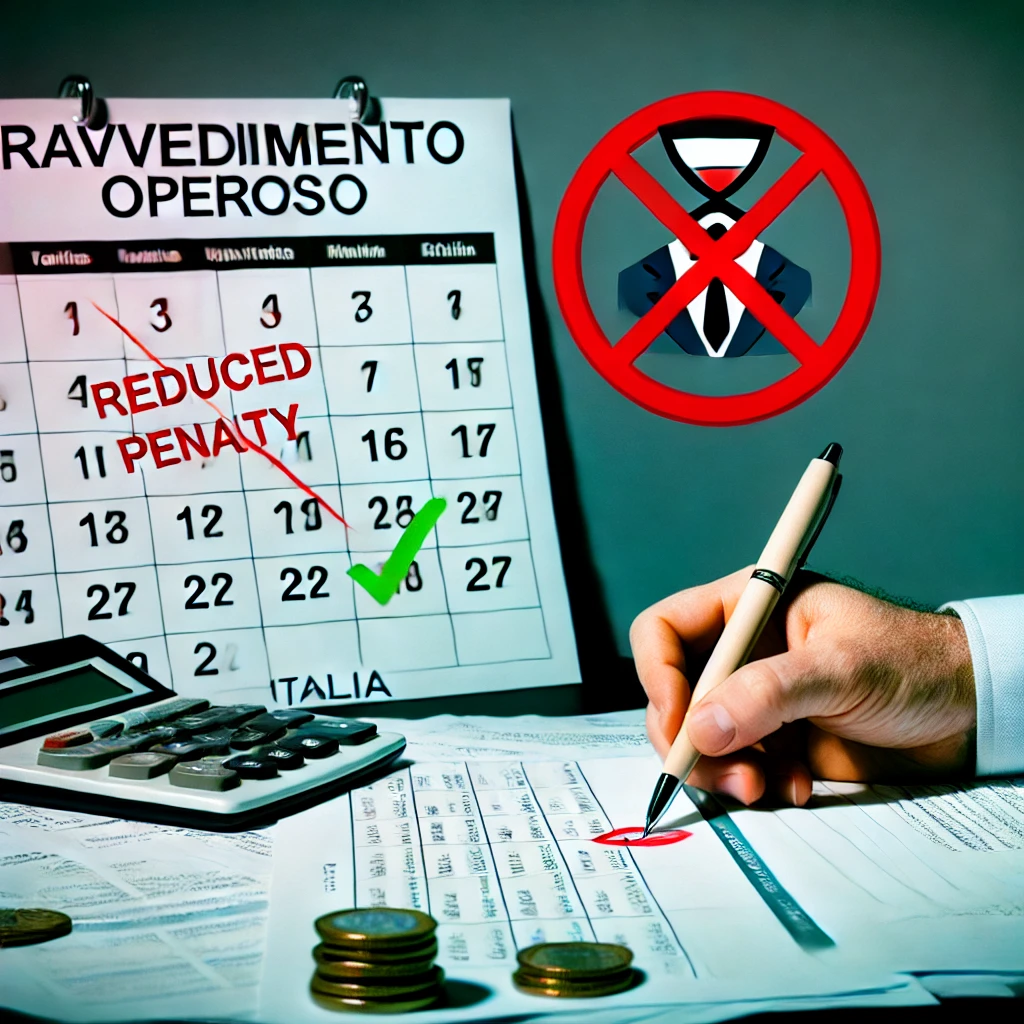In Italy, maintaining compliance with tax regulations is paramount for individuals and businesses alike. And even if you do your best, mistakes can occur, leading to late or incorrect tax payments. Fortunately, Italy offers a solution for such situations that is the ravvedimento operoso. This procedure called in Italian “Ravvedimento operoso” or better known in English as volontary disclosure, enables taxpayers to voluntarily rectify errors or omissions in their tax payments, offering a path to compliance without incurring severe penalties. It is also applicable in situations requiring the presentazione della dichiarazione relativa all’anno successivo (filing of tax returns for the following year).
What is Ravvedimento Operoso or the Voluntary Disclosure?
The legal process known as “ravvedimento operoso,” which translates directly as “redemption” or “penitence,” enables taxpayers to proactively address mistakes or omissions in their tax payments or declarations entro il termine (before the deadline). For anyone dealing with overdue payments, inaccurate sums, or missing disclosures, this is an essential tool.


How Does “Ravvedimento Operoso” Work?
Now, let’s understand how ravvedimento operoso works. The first step is to recognize the mistake or omission in your tax payment or declaration. This could range from a late payment to an incorrect amount or a missed declaration altogether.
Next, you have to opt for timely correction. That is, to reap the benefits of reduced penalties, you must correct the error promptly upon discovery. Generally, this must be done entro un anno (within one year) from when the violation è stata commessa (was committed).
But how should you calculate the penalty? Generally, it’s recommended to see a professional. Anyways, penalties are calculated based on the time elapsed since the original deadline, expressed as a percentage of the unpaid tax. For instance, corrections made within 30 days might incur a penalty of 1/7 of the minimum amount, while those made within 90 days could face a penalty of 1/6 of the minimum. The sooner you rectify the error, the lower the penalty.
That’s it. You have to submit the corrected tax return or payment to the Agenzia delle Entrate (Italian Revenue Agency), ensuring the accurate completion of all forms.
Penalties and Deadlines
The penalties for late or incorrect tax payments fluctuate depending on the time elapsed since the deadline. Here’s a quick guide on main criteria and period.
| Delay in Payment | Applicable Penalty | Additional Notes |
| Delay not exceeding 30 days (Ritardo non superiore a 30 giorni dalla scadenza) | Penalty of 1/7 of the minimum (1/7 del minimo). | |
| Between 31 and 60 days (Tra 31 e 60 giorni dalla scadenza) | The penalty of 1/8 of the minimum (1/8 del minim). | |
| Between 61 and 90 days (Tra 61 e 90 giorni dalla scadenza) | Penalty of 1/6 of the minimum (1/6 del minimo). | |
| Beyond 90 days (Oltre 90 giorno) | Penalties can increase significantly, potentially reaching up to 1.5 times the original amount. | |
| Beyond two years, or if the amount due is equal to 1.5 times the original amount (Oltre due anni dall’omissione, o se l’importo dovuto è pari o superiore a 1,5 volte l’importo originale) | Voluntary disclosure is no longer applicable; standard penalties and interest apply. |
Benefits of Ravvedimento Operoso
So, we’ve got acquainted with the main concept of ravvedimento operoso. But what benefits does it have? It offers several significant advantages, primarily centered around penalty reduction and avoidance of harsher consequences:
- Prompt action can significantly minimize the financial impact of penalties.
- Voluntary correction of errors helps avert more severe legal actions or fines.
- Ensures the accuracy and up-to-date status of your tax records.
- Resolving tax issues through ravvedimento operoso provides peace of mind and allows you to focus on other aspects of your life or business.
We recommend opting for voluntary disclosure (Caso Di Ravvedimento). In cases of significant tax evasion or fraud, a separate procedure known as “voluntary disclosure” may be more appropriate.
To sum up…
In short, when faced with a tax mistake, utilize the “ravvedimento operoso” process to reduce potential fines and avoid future issues. Remember, staying proactive about your tax obligations is crucial for a hassle-free experience in Italy.
Always remember: whenever you’re dealing with tax matters, it’s wise to consult with a tax advisor.
Do you find this article useful? Then read our related articles from here, File taxes in Italy, Tax Returns in Italy, The 730 Tax form in Italy: What is it and why is it so important? and Municipal Tax in Italy: The Ultimate Guide.





